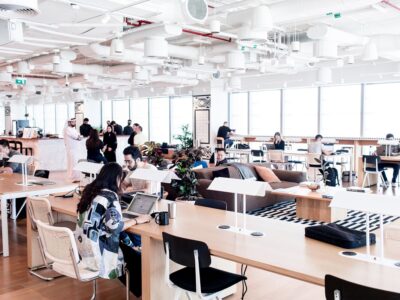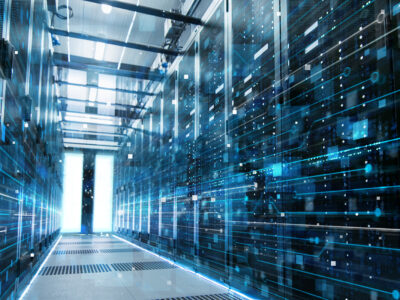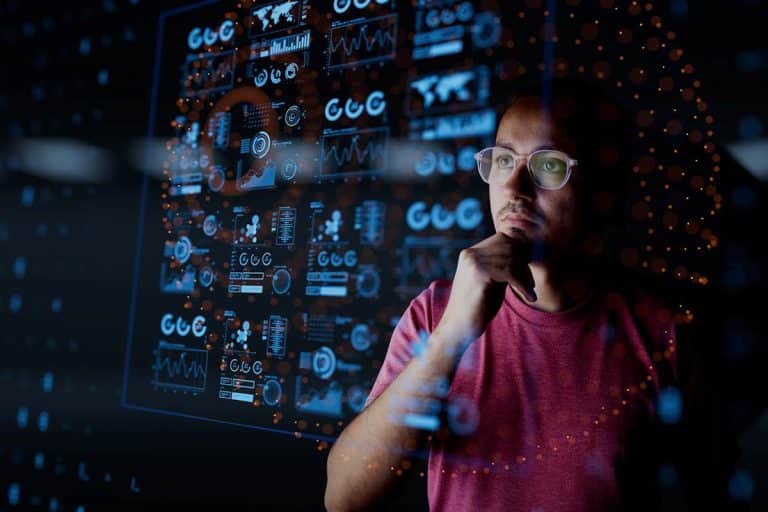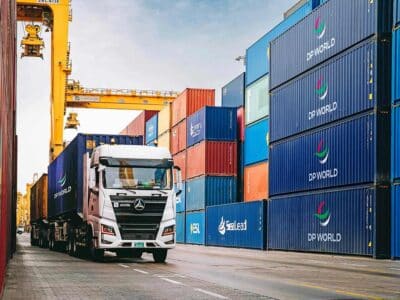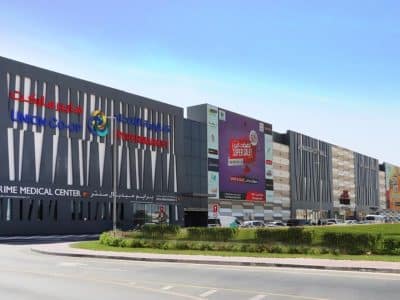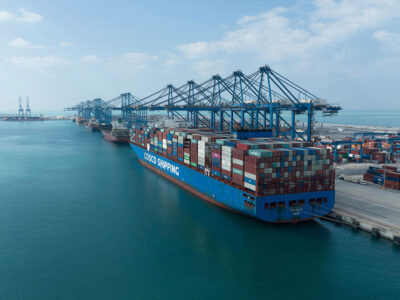Global technology conglomerate Cisco has praised the Middle East’s readiness for the seismic shift to artificial intelligence (AI) as the US-based company revealed key technology trends for 2025.
AI dominated Cisco’s vision for the new year in a landscape shaped by shifting consumer behaviour, an expanding digital ecosystem, and the need to integrate AI.
Cisco said the Middle East emerges as a hub of innovation, with rapid adoption of AI, cloud, cybersecurity, and smart city initiatives. It quoted a Gartner study that the Middle East and North Africa (MENA) region is projected to spend $230.7 billion in 2025 on IT investments in 2025, an increase of 7.4 per cent from 2024.
David Meads, Vice President for the Middle East, Africa, Turkey, Romania, and CIS at Cisco, commented: “By embracing this year’s technology trends with both strategic foresight and pragmatism, companies can effectively navigate challenges and seize growth opportunities.
“The Middle East is witnessing a significant surge in technology investment, driven by a strong commitment from both governments and private enterprises aimed at establishing the region as a leader in technological innovation. This rapid adoption of technology provides businesses with unique opportunities to enhance efficiency, boost productivity, improve customer experiences, and gain a competitive edge.”
Cisco predicted the following technology trends in 2025…
Agentic AI to fuel personalisation and efficiency: Many AI-powered tools in use today are based on static rules or datasets. Agentic AI differs in that it can continuously learn from user inputs and make decisions with little to no human oversight.
It could lead to a scenario where a customer service AI predicts user needs before a query is made, or a network management AI identifies potential issues and resolves them autonomously, ensuring uninterrupted service.
Cisco expects organisations will implement mandatory ethical guidelines to ensure fairness and transparency in algorithmic decisions and protecting intellectual property in response to the rise of Agentic AI.

Humanoids and human collaboration: Cisco expects AI-powered humanoids to form a part of the future workforce. This will force companies to completely reimagine their workplace dynamics. Companies will need to ensure their connectivity has the right levels of latency throughout to process and analyse data in real time. At the same time, organisations need to ensure their security postures.
This human and machine collaboration will be inspiring and allow organisations to greatly scale operations but will also likely trigger concerns about AI replacing jobs. Leaders will need to be clear and uncompromising about harnessing AI’s power without losing the human touch that defines world-class customer experiences.
Companies face challenges for AI readiness: Despite billions of dollars invested into AI models and AI-powered solutions in 2024, new data from Cisco’s AI Readiness Index shows that AI readiness has declined. Only 13 per cent of companies are ready to leverage AI’s power to its full potential.
In 2025, organisations will grapple with how best to secure the right level of compute power to meet AI workloads and will need to lean on their strategic partners to identify and prioritise their AI use cases. IT teams will experience increasing pressure to optimise the management and hygiene, which is currently spread across multiple systems and locations.
Cybersecurity to focus on enhanced human efforts with machines: Advancements in quantum computing are increasing pressure on security teams to address the vulnerabilities of traditional encryption methods against quantum attacks. As these technologies gain traction, organisations must adopt quantum-resistant security protocols to protect sensitive data.
The interconnectedness of digital ecosystems complicates security, making attacks more sophisticated. According to the Cisco AI Readiness Index, only 30 per cent of companies globally have the capabilities to tackle these threats. Integrating AI will enhance human capabilities, strengthening network security and policy enforcement.

Network downtime will approach zero: AI has the potential to virtually eliminate manual misconfiguration mishaps, which are behind more than 40 per cent of network outages and can cost businesses 9 per cent of their total annual revenue.
Intelligent, automated tools can execute workflows throughout the network lifecycle and provide traceability for every action. AI-driven tools will revolutionise network management, learning from each configuration to reduce errors and ensure uninterrupted operations. As AI adoption increases, Cisco expects to see a rapid decline in misconfigurations and network downtime caused by human error approach zero.
Balancing sustainability and growth in AI-powered era: Calling AI’s environmental impact “the elephant in a lot of rooms”, Cisco said sustainability has become an issue and customers increasingly seeking partners that can help them achieve net-zero commitments and sustainability goals.
AI requires high energy consumption levels that impact carbon emissions across the board. The energy used by AI-dedicated data centres is expected to match the amount consumed by a country the size of the Netherlands in one year.
Successful businesses will prioritise energy-efficient products and circular business models. AI technology will be pivotal in enhancing energy efficiencies, ushering in an era of ‘energy networking’ that combines software-defined networking with direct current (DC) microgrids for improved visibility into emissions and optimisation of power usage, distribution, and storage.

